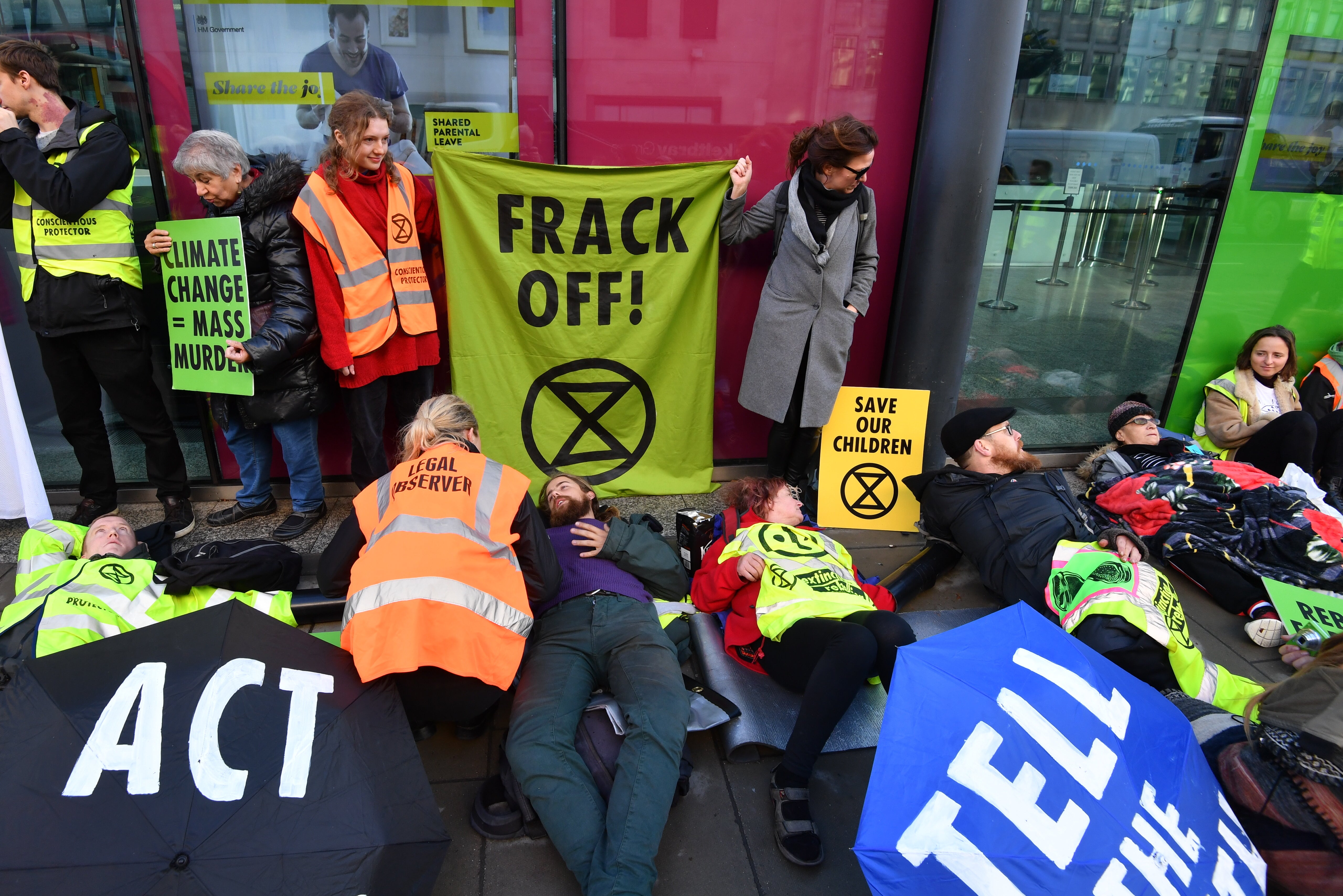Fracking: what is it, why is it controversial and will it lower bills?
The Government has lifted the ban on fracking in England.

The Government has lifted the moratorium on fracking in a controversial move to stimulate more domestic gas supplies.
– What is fracking?
More properly known as hydraulic fracturing, fracking is a process by which liquid is pumped deep underground at high pressure to fracture shale rock and release gas or oil trapped within it.
– How much potential is there for developing shale gas and oil in the UK?
Assessment by the British Geological Survey (BGS) suggested there are an estimated 1,300 trillion cubic feet of shale gas resources in the Bowland Shale across northern England.
Estimates from 2013 for the size of the Bowland Shale reserve found it could potentially provide up to 50 years of current gas demand.
But a study published in August 2019 by the University of Nottingham and BGS suggested there may be less than 10 years’ gas at current levels of demand.
There are “modest” shale gas and oil resources in Scotland, with an estimated 80 trillion cubic feet of gas and six billion barrels of shale oil in the Midland Valley stretching across Scotland and including Glasgow and Edinburgh.
There is an estimated 4.4 billion barrels of shale oil in the Weald Basin in southern England.
But it is not known how much of the resources can be extracted, with exploitable reserves thought to be much lower than the total estimated oil and gas.
– Why is fracking controversial?
The process has been mired in controversy since it hit the headlines in 2011 for causing two minor earthquakes in Lancashire, prompting a temporary ban on fracking in the UK.
The ban was later lifted, with controls put in place to prevent tremors, but fracking continued to attract opponents who feared it could also cause water contamination, as well as generate noise and traffic pollution at the drill sites.
Environmentalists warned that pursuing new sources of gas – a fossil fuel – is not compatible with efforts to tackle climate change, and the focus should be on developing cleaner sources of energy such as renewables.
A new moratorium was imposed on fracking after a series of earthquakes at the UK’s only shale wells at Preston New Road, Lancashire, in 2019.
How has the Conservative Government’s position changed?
It had once hoped that a shale gas industry in the UK could boost tax revenues, create jobs, reduce reliance on energy imports and bring down household fuel bills.
The Government took steps to get the industry going, such as introducing tax breaks and community payments, and proposed changes to planning rules to get schemes off the ground more easily.
But after bringing in the moratorium in November 2019, the Tory manifesto for the general election in December abandoned plans to change planning rules, saying: “We will not support fracking unless the science shows categorically that it can be done safely.”
It seemed that the decade-long controversy over fracking was drawing to an end when at the beginning of 2022, Cuadrilla announced it had been told by officials to permanently cap its two shale wells at Preston New Road.
But Russia’s invasion of Ukraine sent gas prices soaring, and prompted calls for a rethink on fracking.
The Government withdrew the demand to cap the wells and commissioned a review from the BGS on shale gas and seismic impacts. Now the moratorium has been lifted.
– So will fracking make a difference to bills?
No. UK energy prices are driven by international gas prices and even if fracking was pursued at scale – which even with the lifting of the ban remains an uncertain prospect – UK reserves of shale gas are too small to bring down those global prices.
Chancellor Kwasi Kwarteng spelled this out as Business Secretary in March when he wrote in the Mail on Sunday that: “No amount of shale gas from hundreds of wells dotted across rural England would be enough to lower the European price any time soon.
“And with the best will in the world, private companies are not going to sell the shale gas they produce to UK consumers below the market price.”
He also warned that it would take a decade to get sufficient volumes of gas from fracking, harming communities and the countryside along the way.
The heads of the Climate Change Committee and the National Infrastructure Commission agree, warning that UK gas reserves – from fracking or North Sea drilling – are “too small to impact meaningfully the prices faced by UK consumers”.
– Where has fracking been pursued and opposed in the UK?
Cuadrilla has long focused on fracking in Lancashire, where it also applied for planning permission at a second site, Roseacre Wood, which was refused by the Government in 2019.
In December 2018, the National Trust withdrew its legal opposition to seismic surveying by energy company Ineos at Clumber Park, in Nottinghamshire, but vowed to fight to protect the site from fracking.
Parts of Yorkshire have also been targeted for fracking, including areas around the North York Moors National Park, though the regional minerals plan has been introduced to conserve the protected area from harm.
The Scottish and Welsh governments do not support fracking in their countries, and there is a planning presumption against it in Northern Ireland.
Bookmark popover
Removed from bookmarks